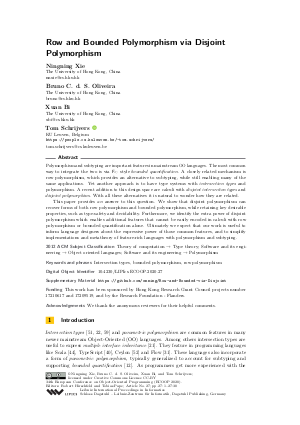LIPIcs.ECOOP.2020.27.pdf
- Filesize: 0.68 MB
- 30 pages

 Creative Commons Attribution 3.0 Unported license
Creative Commons Attribution 3.0 Unported license



























































Feedback for Dagstuhl Publishing